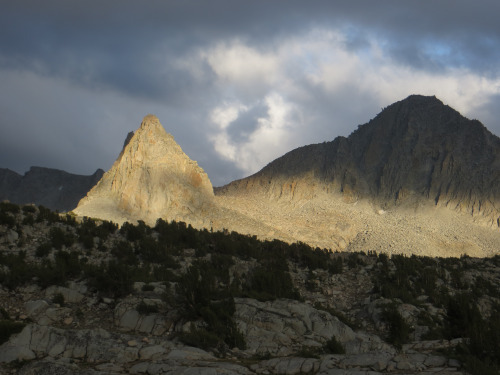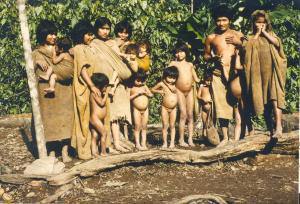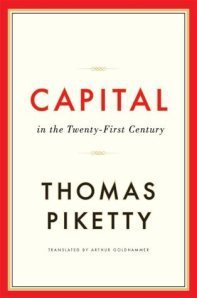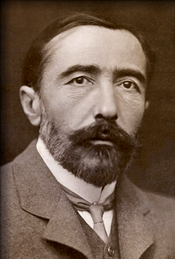Tom Gething's Blog, page 2
September 24, 2014
Those French!
Is it any wonder that not one but two words in English for a social climber—arriviste and parvenu—come from the French? Our language is peppered with borrowed terms that provide nuanced derision in respect to class and wealth: nouveau riche, bourgeois, and gauche are but a few.
I can see why theFrench economist Thomas Picketty, who has made his name with a study ofwealth inequality, was fascinated with Honoré de Balzac’s novel Père Goriot. It’s as if Balzac’s characters epitomize many of these...
August 7, 2014
Summer in the Sierra Nevada

Photo credit: P. Lane
My hiking buddies and I recently completed our annual weeklong backpacking trip into the wilderness. This year we branched out from the beautiful Pacific Northwest and travelled down to the Sierra Nevada. None of us had hiked there before, and we’d heard great things about it. We selected a 60-mile loop that took us onto a section of the John Muir Trail, which stretches 210 miles between the Yosemite Valley and Mt. Whitney. Of course, I took my Kindle along, because after...
July 30, 2014
A multimedia presentation on my novel
Last spring I was privileged to haveUnder a False Flagused as part of the curriculum for a course in contemporary Latin American history taught by Professor Michael Hallat Armstrong Atlantic State University in Georgia. I suspect that’s how this little multimedia presentation by Tara Kempcame about. As an author, it’s both fascinating and satisfying to see how a reader approached my book. The YouTube links Tara includedin her presentation are excellent background pieces on Chile before the co...
July 14, 2014
Storytelling—a delicate balance
Every now and then a news item appears about the discovery of some remote Amazon tribe that survives in a pristine, Neolithic state. The stories occurless and less, as fewer and fewer tribes remain untouched by the modern world. Disease and development have devastated most.

Photo: machiguenga.wordpress.com
What is lost in this process of destruction? Does it matter if a Neolithic people, their entire language and culture, is lost or transformed? Is there anything that these peoples, so separate...
June 18, 2014
Austen, Balzac and the “dismal science”
I’m about halfway through a light summer read—French economist Thomas Piketty’sCapital in the Twenty-FirstCentury, which so far has been thoroughly accessible and engaging.
 Piketty’s surprise bestseller, which in 577 heavily footnoted pages analyzes centuries of data, is an important new assessment of economic growth, capital formation, wealth and income distribution. As you might expect for a book with a nod to Karl Marx’sDas Kapital in its title, the bookhas been praised by liberals and atta...
Piketty’s surprise bestseller, which in 577 heavily footnoted pages analyzes centuries of data, is an important new assessment of economic growth, capital formation, wealth and income distribution. As you might expect for a book with a nod to Karl Marx’sDas Kapital in its title, the bookhas been praised by liberals and atta...
June 10, 2014
Life under the regime
Maybe it’s from growing up during the Cold War, but I always imagined life in an authoritarian state to be like One Day in the Life of Ivan Denisovich, laying bricks in the Siberian cold, your stomach empty, your fingertips frozen. Or perhaps likeNineteen Eighty-Four, with Big Brother’s thought police around every corner and rats thrust in your face. Or the solitary confinement of Darkness at Noon, facing daily interrogations until you finally confess, only to be marched out into the prison y...
May 4, 2014
“O lost, and by the wind grieved, ghost, come back again.”
My wife and I just returned from North Carolina, where we toured the Thomas Wolfe House in Asheville. The museum occupies the sprawling, many-gabled boarding house his mother once ran for visitors (many of them tuberculosis patients) seeking the cool mountain air. Wolfe memorialized the house as “Dixieland” in his deeply autobiographical first novel Look Homeward, Angel.

The real “Dixieland” (Photo: Wikipedia)
Our guide said that fewer and fewer people coming for the tour have read Thomas Wolfe...
April 15, 2014
“To make you see”—Essays on Conrad

Joseph Conrad
I have always been a hugefan of Joseph Conrad; I even wrote my undergraduate honors thesis on Lord Jim. But it’s difficult for me to read him today because of the powerful sway (and negative effect) he has on my writing. Graham Greene felt the same way. “The heavy hypnotic style,” he called it.
Conrad has affected many writers that way. The Polish-born genius wrote his first novel at the age of 36, in English, after twenty years working as a merchant seaman in the Far East, Africa...
April 5, 2014
Myth-making as denial of reality
About thirty years ago, I read an essay that was so good I pinched the book it was in from my sister. In truth, the book, an anthology of expository writing called the Norton Reader, had been assigned in one of her college courses and, after the class was over, she had abandoned it at home. So I was really only rescuing it from neglect.
The essay was “‘The Bridge over the River Kwai’ as Myth” by Ian Watt and was reprinted from a 1971 issue of the Berkshire Review. I knew nothing about the auth...
March 23, 2014
Two years a slave
Tomorrow marks the start of my third year blogging. I usethe term “slave” somewhat facetiously and certainly not in the word’s abhorrent primary meaning. But the second definition—working without remuneration—isn’t too far off, and a third meaning is even more accurate: being in thrall to something, an addict or devotee. For blogging is abeguiling habit. You put athought, an image, or a question out there and wait. The reaction can be immediate or slow in coming, what you expected or a comple...




